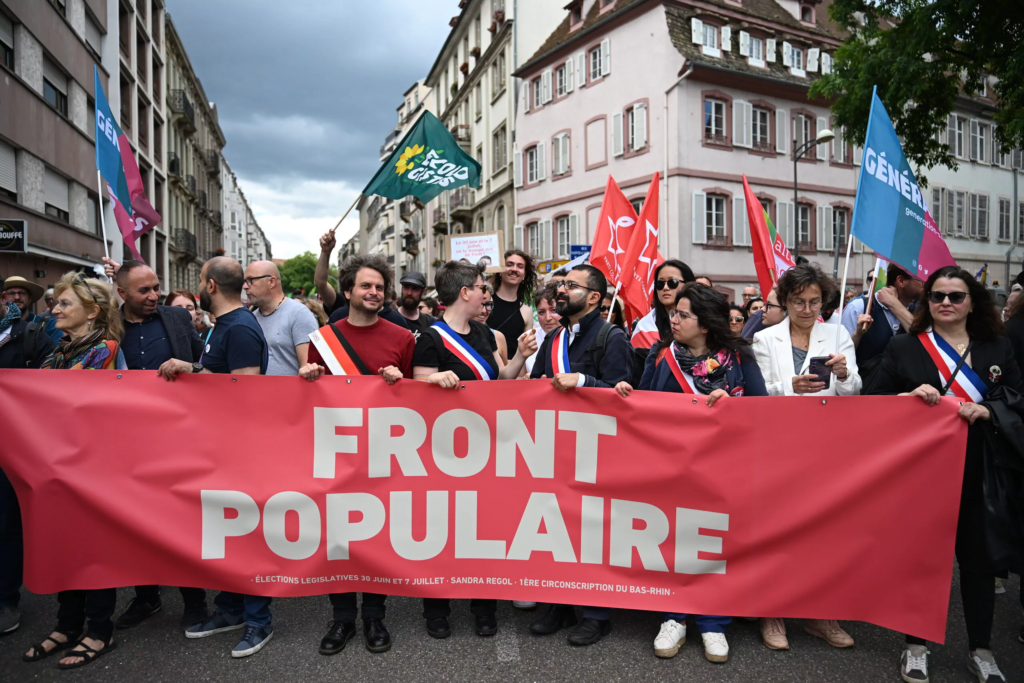In a move that has ignited public outrage, President Emmanuel Macron’s recent appointment of right-winger Michel Barnier as Prime Minister has drawn fierce criticism from France’s left-wing alliance, the Nouveau Front Populaire (NFP). This coalition of left-wing parties, which won the most seats in the National Assembly following June’s snap election, rallied in Paris, mobilizing tens of thousands in protest of what they view as a blatant disregard for the democratic will of the people. Leaders of the NFP argue that Macron’s decision defies the election results and is an attempt to silence the voices of those who voted for change.
With banners held high and voices raised, an estimated 160,000 protestors (according to France Insoumise) gathered to demonstrate against what they call a “denial of democracy.” Among the demonstrators, a growing sentiment was clear: the path forward must involve unified resistance both inside and outside parliament to oppose the policies of Barnier’s government.
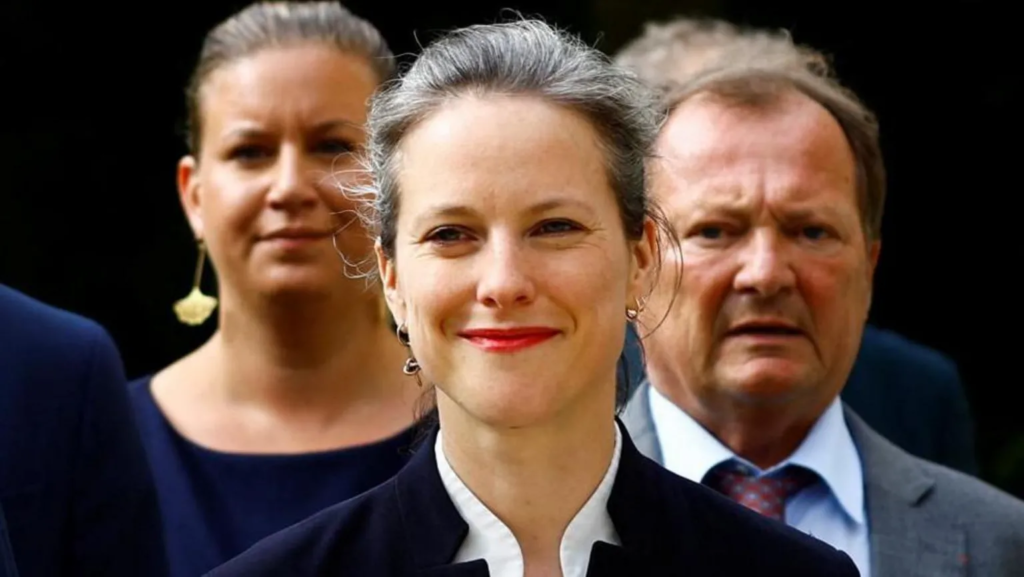
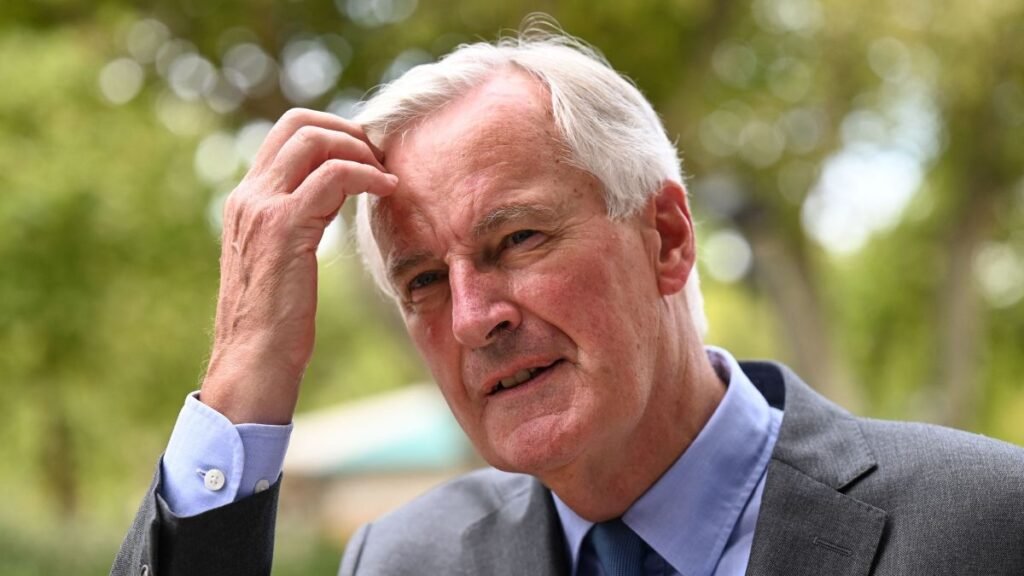
A Growing Political Divide: The NFP’s Vision Rejected
Following their strong showing in the recent election, the NFP coalition had hoped to influence the direction of France’s government. Comprising France Insoumise, the Parti Socialiste, the Greens, and the Communist Party, the NFP had collectively agreed on Lucie Castets, a respected economist and advocate for public services, as their candidate for Prime Minister. However, Macron’s dismissal of Castets in favor of Barnier has dashed these hopes and raised questions about the legitimacy of France’s political institutions.
NFP leaders have framed Barnier’s appointment as an attempt to force a right-wing agenda, with potential support from Marine Le Pen’s Rassemblement National (RN) should Barnier face a no-confidence vote. The decision has strengthened calls for direct action as protestors claim the Left’s presence in parliament alone will not be sufficient to counter Barnier’s government.

Unity Amid Challenges: The NFP’s Response
Despite some historical divisions, the NFP alliance has remained cohesive in its opposition to Macron’s decision. France Insoumise leader Jean-Luc Mélenchon has called the appointment of Barnier a “coup against democracy,” a sentiment echoed by many on the left. The Parti Socialiste has committed to voting against Barnier’s government, though it has opted for parliamentary opposition rather than joining the protest. Other NFP figures, like Marine Tondelier of the Greens and Fabien Roussel of the Communist Party, have condemned the appointment and supported the protest, calling for unity in the face of Macron’s latest move.
This unity within the NFP is a signal to the government of their commitment to the coalition’s platform, which includes reversing the controversial pension reform, increasing the minimum wage, and restoring the wealth tax.
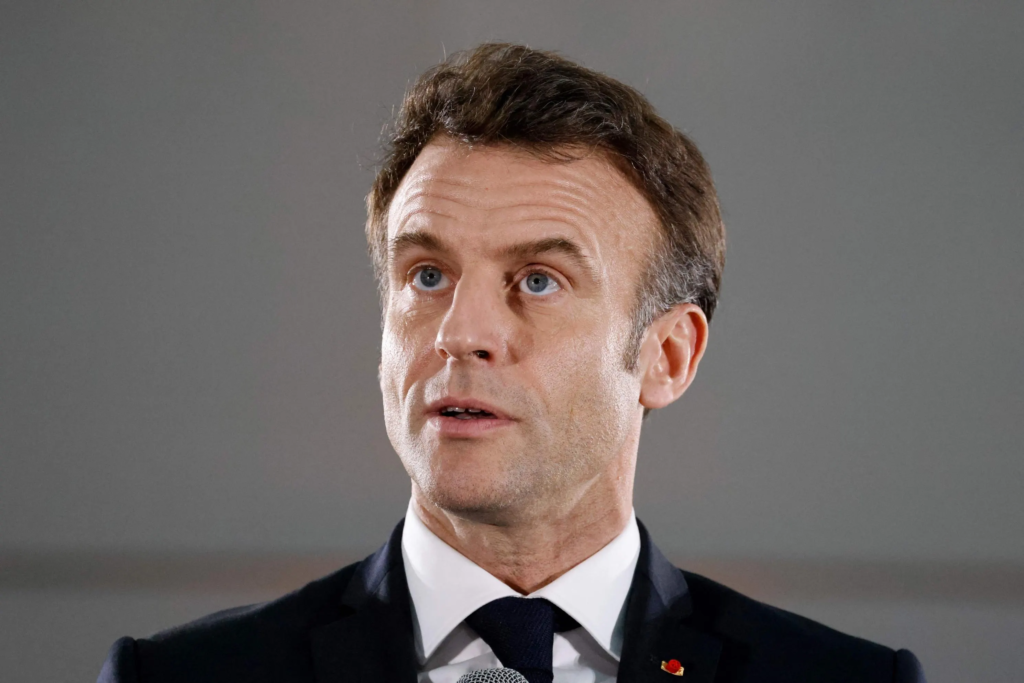
Internal Struggles and the Future of the Left
As Macron’s decision reverberates across the political spectrum, questions about the durability of the NFP alliance continue to surface. Tensions within the Parti Socialiste reflect a struggle between factions favoring closer alignment with Macron’s centrist coalition and those committed to a progressive agenda. While some members of the Socialist Party have expressed dissatisfaction with the alliance, calling it incompatible with their stance on foreign policy and secularism, others see the coalition as essential to countering right-wing influence.
One such example is the discussion around Bernard Cazeneuve, a former Socialist Prime Minister whose potential candidacy was seen by some as a chance for unity with Macron’s centrists. Critics of the NFP argue that declining this potential alliance may have inadvertently solidified Macron’s decision to appoint Barnier. However, Olivier Faure, the Parti Socialiste leader, insists that the choice to maintain the NFP alliance reflects a commitment to the coalition’s progressive values and policy priorities.
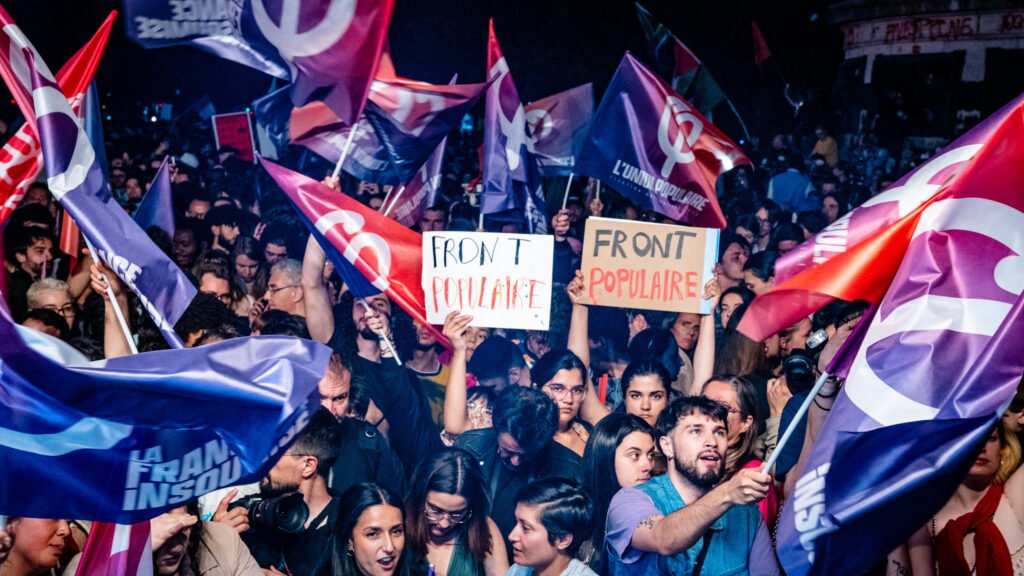
Protest and Parliamentary Resistance
With the new parliamentary session set to begin on October 1, the NFP’s focus will be on mounting both legislative and street-based opposition to Barnier’s government. The coming months will test the Left’s ability to remain unified as they navigate a complex political landscape and attempt to counter policies that many in the NFP consider antithetical to the electorate’s wishes. For the NFP, Macron’s choice of Barnier has underscored the importance of sustained grassroots mobilization. The coalition’s unity will be crucial if it hopes to push back against a government that they believe does not represent France’s working class. As protesters fill the streets and parliament resumes, the NFP’s resolve will shape the direction of France’s political future, signaling that the battle for a democratic, progressive France is far from over.
